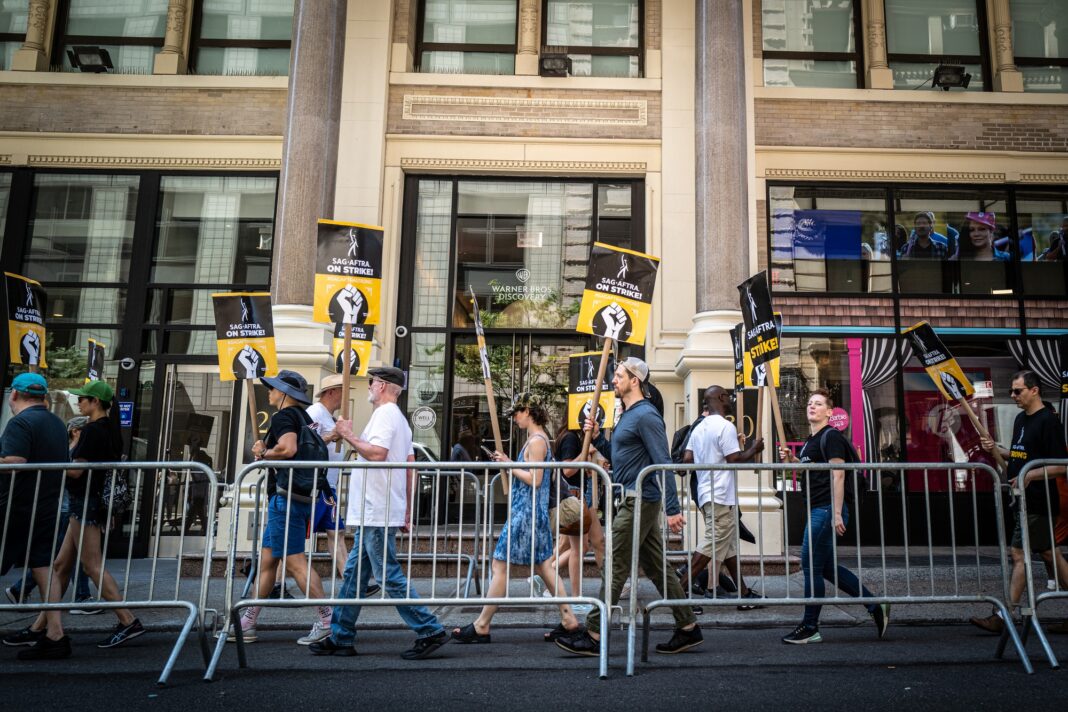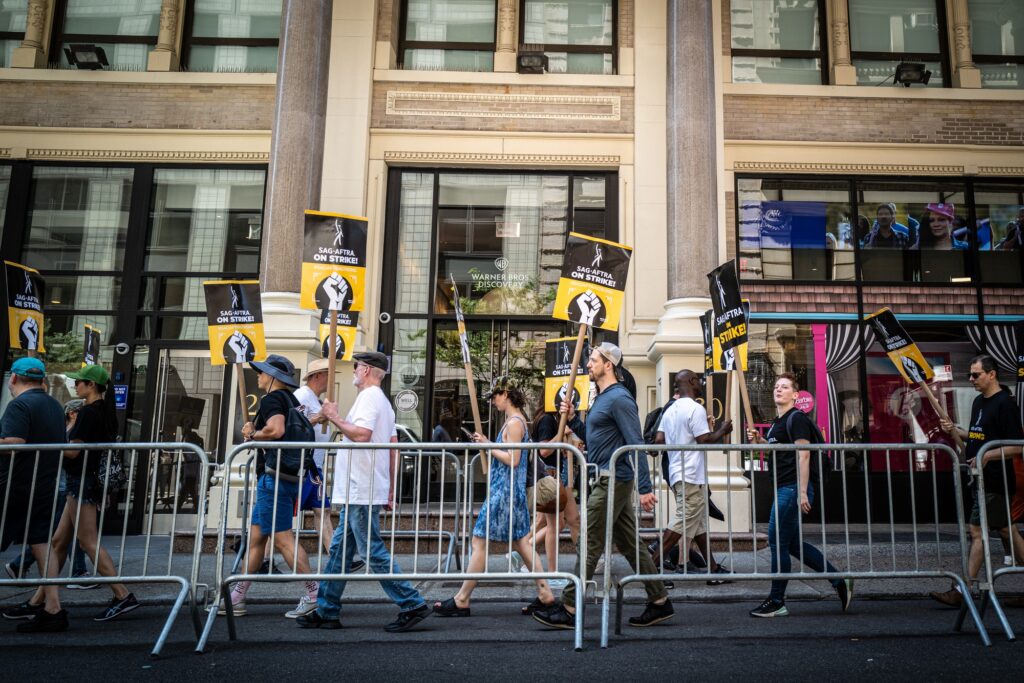

Hollywood is closed. Every major film and television production in Los Angeles shut down in June, and just a handful of independent film companies are still shooting.
Upcoming movies including tennis drama “Challengers,” the sequel to “Dirty Dancing,” “Dune: Part 2” and more have been forced to push back their release dates by several months. Meanwhile, writers and actors alike have taken to the streets of LA to protest against unfair pay.
The abrupt pause stems from a breakdown of negotiations between the Screen Actors Guild and the American Federation of Television and Radio Artists (SAG-AFTRA) and the Alliance of Motion Pictures and Television Producers (AMPTP). This actor strike coincides with the Writers Guild of America (WAG) strike that started in May.
“I agree with everything they’re protesting,” said Walker Klauda, a sophomore media scoring and production major. “It would make sense that those who are creating the product, especially when it comes to art, should make most of the profit — or at least enough of the profit who sustain an actual life.”
These organizations revise contracts every three years to better reflect the interests of its members. This year, conflict arose over streaming residuals, pay for writers and actors and the increasing use of artificial intelligence (AI) to replicate an actor’s likeness.
The ongoing strike continues the complex conversation about where the priorities of Hollywood studios lie — with people or profits.
“Better pay is understandable, but it’s hard for streamers to pay actors a function of their contribution because they don’t make money per view — their revenue comes from monthly subscriptions,” junior motion pictures major Jack Brixius said.
Though the strike discourages some students about the state of the film industry, the overwhelming display of solidarity between actors and writers highlights the power that workers have when they unite for a cause.
For Camille Kerber, a junior studying business entrepreneurship and film, the strike is reassuring for her and other students who plan to enter the film industry.
“We will be joining a union of artists who fight for what they believe they deserve, and protect the nature of the job,” Kerber said. “It’s also good to see the power that workers have against large corporations that try to take advantage of them.”
Even with the writers’ and actors’ relentless protesting, production companies like Netflix and Warner Bros. are determined to uphold their side of the contract negotiations. Another round of negotiations may not take place until late October.
“The endgame is to allow things to drag on until union members start losing their apartments and losing their houses,” a studio executive told Deadline.
If these reports of a cold approach are true, one might deem these studios’ actions an extreme abuse of power that harms the welfare of its workers. The halt in production has also cost studios millions of dollars and the LA County economy a whopping $2.5 billion.
Small, yet renowned, production company A24, known for films “Moonlight” and “Everything, Everywhere, All At Once,” has been allowed to continue filming under these circumstances. They agreed to all of SAG-AFTRA’s conditions and were permitted to continue production by the union.
This agreement by A24 demonstrates that a successful negotiation between AMPTP, WAG and SAG-AFTRA is possible after all.






